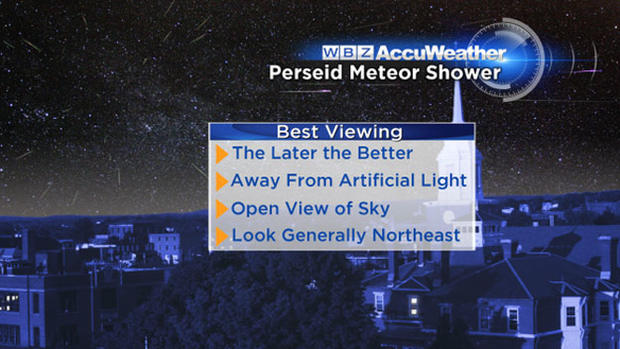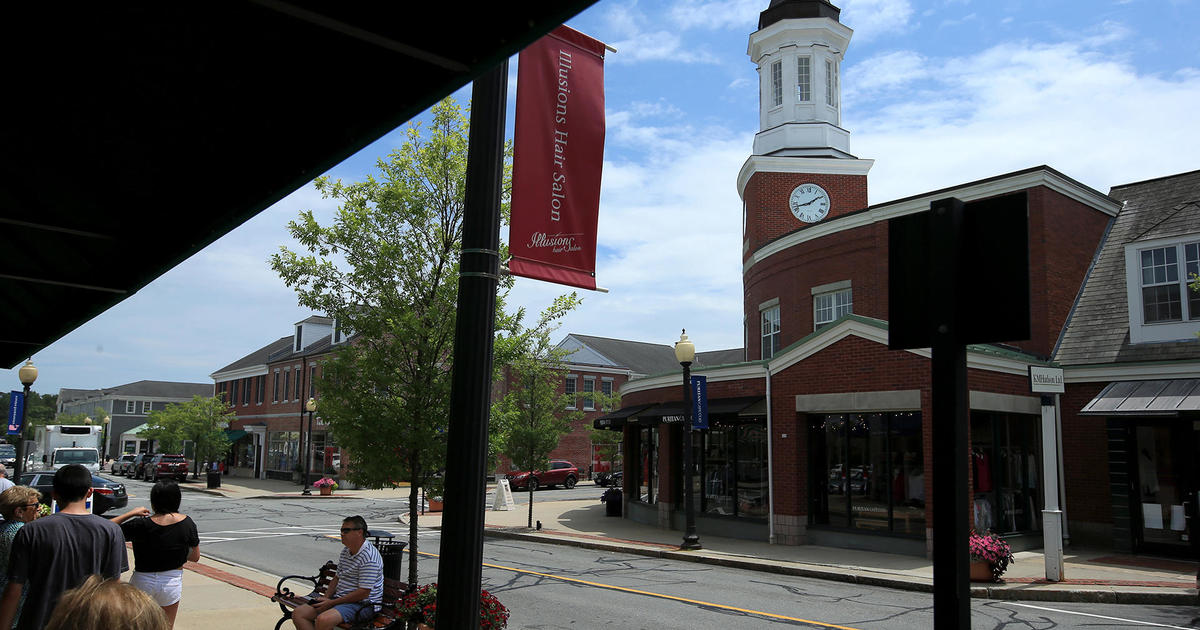Perseid Meteor Shower Could Be Best Show In Years
BOSTON (CBS) -- Sky Watcher Alert! All indications are that we are in for a fantastic show overnight tonight thanks to the annual Perseid Meteor Shower. This year we have several factors working in our favor which should combine for one of the best meteor shows in recent years.
First off, where are these meteors coming from?
The Perseids are tiny bits of debris from a comet known as Swift-Tuttle. This comet is the largest known object (about six miles across) to swing through our area on a repeated basis, once every 130 years to be exact. The last time the comet made a flyby was way back in 1992, but the debris left behind is what we pass through every year about this time. In fact, this year, astronomers believe that the Earth will actually pass very close to the debris left way back in 1862!
So what is a meteor anyway?
Most folks assume that the meteors streaking across the sky are like those seen in disaster movies, big and foreboding. However, the majority of the Perseids are actually very small, about the size of a grain of sand. The "larger" ones can be as big as a grapenut or pea. They burn up quickly in the atmosphere, typically around 60 miles up, traveling well over 100,000 miles per hour and being heated to around 3,000 degrees Fahrenheit.
Most importantly, how do I see them?
We have two very important factors in our favor this year for viewing. First, the new moon falls on August 14, so the night sky will naturally be quite dark. Second, the peak is predicted to come during the best watching hours in North America, just after midnight. This is when the "radiant point" (where the shower emanates from) is highest in the sky.
So, some pointers for seeing the best show:
-Stay up late, real late. Best viewing will be after midnight
-Go away from artificial lights - no street lights. Find a rural, dark spot.
-Set up in a location with a wide open view of the sky and lie back or recline facing generally northeast.
With any amount of luck, if you follow these guidelines, you should be able to see at least one meteor per minute and perhaps as many as 100 in an hour!
Last but not least, how's the weather look?
More good news…any showers or clouds that build this afternoon will quickly diminish around sunset and skies will generally be mainly clear overnight. Temperatures will also be fairly comfy, dropping into the 55-65 range by early morning on Thursday. Combine that with light winds and you have nearly perfect viewing conditions!
If you are lucky enough to snap a picture or get some video, be sure to send it to our weather team at weather@wbztv.com. You might just see your meteor on TV!
Happy viewing!
Follow Terry on Twitter @TerryWBZ




